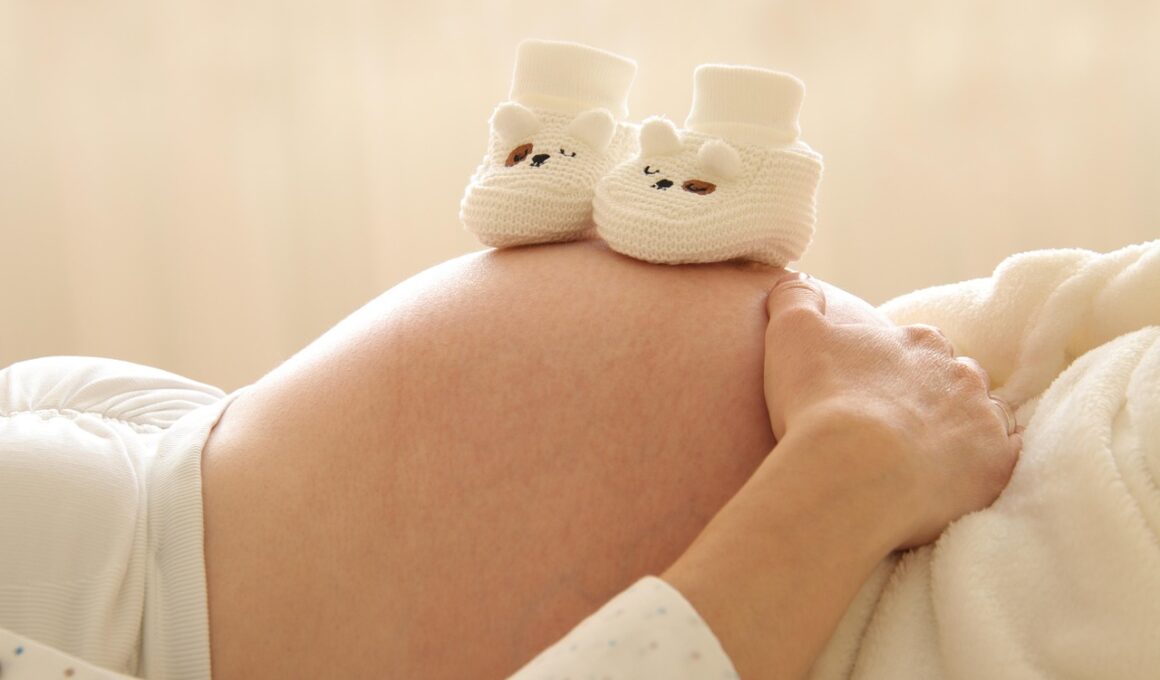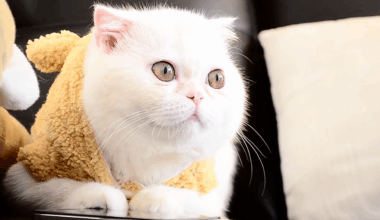The Science Behind Cat Pregnancy Supplementation
Understanding the nutritional needs of pregnant cats is essential. During pregnancy, felines undergo various physiological changes, requiring a balanced diet supplemented by essential nutrients. These nutrients are vital for both the health of the mother and the developing kittens. Notably, expectant mothers face increased nutrient demands for folic acid, calcium, and vitamins such as A and D. Supplementation plays a critical role because these nutrients support fetal development and ensure the mother maintains her well-being. Incorporating high-quality supplements can prevent complications during gestation and delivery. Moreover, pregnancy supplements can help reduce the incidence of birth defects in kittens. Such supplements typically come in various forms, including powders, gels, and capsules. Each type offers different benefits and dosages tailored to suit diverse diets. Furthermore, when choosing supplements, always consult with a veterinarian to ensure they are appropriate for your cat’s individual health needs. A specialized diet will support both the mother’s health and the vitality of her kittens, leading to a smoother pregnancy and healthier births, which is a priority for any responsible cat owner.
Benefits of Nutritional Supplements
Various benefits arise from providing supplements during a cat’s pregnancy. Firstly, enhancing the diet with extra vitamins and minerals is crucial for the development of healthy kittens. Nutritional supplements typically contain important ingredients like omega-3 fatty acids and antioxidants, which support fetal growth and immunity. Furthermore, a well-balanced supplement can ensure the mother cat maintains optimal energy levels, which is especially important as her caloric needs increase. A higher energy intake aids in sustaining milk production, providing essential nourishment to nursing kittens post-birth. Additionally, studies indicate that proper supplementation can decrease stress levels in pregnant cats, contributing to healthier behavioral outcomes. Stress management is essential for an expectant mother, as excessive stress can adversely affect her pregnancy. Another significant benefit of supplements is the support for quick postpartum recovery. By ensuring the mother receives her required nutrients, she can regain strength faster, which sets the stage for successful mothering. Lastly, choosing a reputable supplement brand guarantees quality and efficacy, making it easier for owners to foster a healthy pregnancy and satisfy the nutritional needs of their beloved feline companions.
Proper timing when introducing supplements is critical during a cat’s pregnancy. Ideally, starting supplementation should occur as soon as the pregnancy is confirmed. Early supplementation lays the groundwork for proper fetal development, as foundational nutrients need to be available right from the beginning. Additionally, gradually incorporating supplements into the diet reduces the risk of digestive upset. It’s best to initiate with a low dosage and observe the cat’s response before transitioning to the full dosage. Consistency is key; administering supplements on a regular schedule helps maintain nutrient levels without overwhelming the cat. As gestation progresses, nutrient requirements shift, so adjustments may be necessary in consultation with a veterinarian. Paying attention to the cat’s weight and overall health is essential throughout this process. Pregnant cats should not become overweight, as this can lead to complications. Keep track of their weight and overall health when adjusting their diet. Regular vet check-ups can help monitor their nutrient intake and balance. Focusing on proper timing and dosage ensures a healthier pregnancy, which leads to better long-term outcomes for both mother and her kittens.
Common Ingredients in Supplements
When selecting supplementation for pregnant cats, it is essential to recognize common, beneficial ingredients. First and foremost, folic acid is a key nutrient, vital for healthy fetal development. This water-soluble vitamin aids in proper cell growth and also prevents certain congenital disabilities. Another significant component is calcium, which supports the development of strong bones and teeth in the kittens while also helping the mother maintain her bone density. Omega-3 fatty acids, commonly derived from fish oil, provide numerous benefits including anti-inflammatory properties and brain development support for kittens. Vitamins A and D also play crucial roles in immune function and overall health. Furthermore, probiotics are gaining attention as effective supplements during pregnancy; they promote gut health and improve nutrient absorption, resulting in better overall wellbeing. Each supplement may vary based on the specific needs of the cat, so a check-in with a vet is essential. By incorporating the right vitamins and nutrients, owners can ensure a healthy environment for fetal growth, leading to the birth of vibrant and healthy kittens. This careful selection process not only impacts the ensuing generations but the overall health of the mother cat, creating a holistic approach.
Dietary diversity should also be fostered alongside supplementation in pregnant cats. A varied diet ensures complete nutrition and mitigates potential deficiencies that can arise from reliance on supplements alone. Including high-quality protein sources, such as chicken or fish, contributes essential amino acids necessary for growth and milk production. Additionally, incorporating wet and dry food can offer both moisture and texture in the cat’s diet. Cats often benefit from high-energy foods that align with their increased caloric requirements during pregnancy. Furthermore, introducing fruits and vegetables in moderation can also provide beneficial vitamins and minerals. Pumpkin, for example, is known for its fiber content, aiding in digestive health. Nonetheless, care should be taken as not all human foods are safe for cats. Always conduct thorough research before offering new foods to ensure safety and suitability. Monitoring the cat’s reaction to new foods is also important, helping identify any food sensitivities or allergies. In addition to supplements, fostering a diverse and balanced diet supports the mother’s health during pregnancy. This holistic approach promotes well-being, leading to successful birthing and a strong maternal bond essential for kitten development.
Consultation with Veterinarians
Regular consultation with a veterinarian is paramount when considering cat pregnancy supplementation. Veterinarians possess the knowledge and experience necessary to tailor dietary choices to the specific needs of each cat. They can evaluate health conditions, weight fluctuations, and dietary habits, ultimately proposing the best supplementation solutions. Additionally, vets can identify potential deficiencies early, suggest the right types and amounts of supplements, and monitor the cat’s progress throughout the pregnancy journey. Interaction with a veterinarian ensures that the cat receives personalized care, maximizing healthy outcomes for both mother and kittens. Furthermore, as each pregnancy can be different, having a professional eye can help discern any complications that may arise. Keeping the lines of communication open with the vet will allow for adjustments to the supplements and diet as pregnancy progresses. Establishing a detailed plan can help set expectations and provide reassurance to the owner, promoting a positive environment. Ultimately, the health of the mother cat and her kittens is paramount, and so collaborating with a veterinarian empowers owners to take informed action regarding supplementation and nutrition.
Many cats may experience temperament changes during pregnancy that can affect their nutritional needs. These changes are typically a result of hormonal fluctuations, causing sensitivity, irritability, or increased affection toward their owners. As a result, the dietary preferences of pregnant cats can shift dramatically. For example, some cats may show increased pickiness about their food or the desire for specific flavors or textures. During this time, it’s crucial to be attentive and responsive to their needs. Experimenting with different supplements can assist in meeting their preferences. Forcing a cat to consume something they resist can lead to further stress or refusal to eat altogether. Keeping a comfortable and stress-free environment encourages positive eating habits. Additionally, some cats might show signs of nausea or upset stomachs, which may necessitate tailored supplementation plans, focusing on easy-to-digest ingredients. Comfort food can also improve their appetite during this sensitive time. Therefore, observing changes in mood and appetite supports the overall health of the cat and contributes to a smoother pregnancy experience. Resourceful strategies can make a considerable difference in ensuring that pregnant cats receive the nutrients needed.
Conclusion: Ensuring a Healthy Pregnancy
In conclusion, providing the right nutritional supplements throughout a cat’s pregnancy is crucial for promoting the health of both the mother and her kittens. A combination of essential vitamins, minerals, and a balanced diet leads to optimal fetal development, improving the chances of delivering healthy, vibrant kittens. Owners must also remain proactive in consulting with veterinarians to ensure the correct supplementation strategy is implemented. Paying attention to each cat’s unique needs—whether through diet variety or focusing on specific nutrient requirements—can significantly affect pregnancy outcomes. Moreover, being mindful of changes in behavior and appetite allows owners to closely monitor the cat’s well-being during this sensitive period. Ensuring a supportive environment along with proper nutrition is essential for fostering strong maternal instincts and subsequently raising healthy kittens. The journey does not end with birth; ongoing nutritional support is vital for nursing and raising young felines. Educated decisions about supplementation and dietary improvements lead to happier, healthier connections between owners and their beloved cats, enriching the bonds forged throughout this developmental journey.


